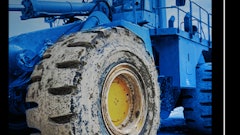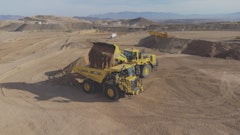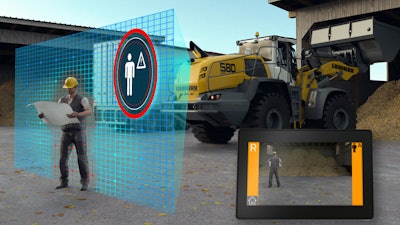
Liebherr first debuted its intelligent assistance systems for its XPower large wheel loaders in April 2019 at the bauma show in Munich, Germany. It continues to build upon the technology with the addition of two new functions to its active personnel detection feature, designed to further improve wheel loader jobsite safety.
Statistics show accidents with wheel loaders occur most frequently when the operator reverses after a loading process, the company points out. This reverse travel is particularly risky if people are located in the wheel loader’s operating area. To ensure maximum safety, active personnel detection at the rear of the Liebherr L 526 to L 586 XPower range of wheel loaders now includes an integrated braking assistance function and an incident map.
With the brake assistant, the hydrostatic components of the drivetrain automatically reduce the speed of the wheel loader to a standstill when the active personnel detection issues a warning signal. Because it does not rely on human reaction time, the braking process is initiated at an earlier stage and is faster than traditional braking. This means there is an important reduction in the stopping distance, which can reduce the frequency and severity of accidents.
 The incident map displays the risk zones and potential sources of danger on the site. The operator can use this to take measures to prevent accidents and increase safety.Liebherr
The incident map displays the risk zones and potential sources of danger on the site. The operator can use this to take measures to prevent accidents and increase safety.Liebherr
With the incident map, each time the assistance system detects a danger and a warning signal is issued, the system transmits a GPS signal to LiDAT, Liebherr’s in-house transfer and location system. On the basis of this signal, a Google map in LiDAT shows the GPS points for each operator of a wheel loader with active personnel detection. The result is an incident map displaying the risk zones and potential sources of danger on the site.
The operator can then use the incident map to take measures to prevent accidents and thus increase safety. For example, the operator might reroute footpaths, cordon off areas and alter dangerous work sequences. The head of operations can also use the incident map to train employees and make them aware of risky situations.
Information provided by Liebherr and edited by Becky Schultz.











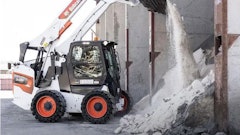


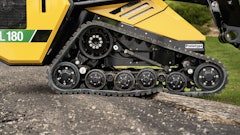
![Hcm Ax Landcros Dual Branded Logo[25]](https://img.forconstructionpros.com/mindful/acbm/workspaces/default/uploads/2025/11/hcmaxlandcros-dual-branded-logo25.Qhg3vUCjoK.jpg?ar=16%3A9&auto=format%2Ccompress&bg=fff&fill-color=fff&fit=fill&h=135&q=70&w=240)
